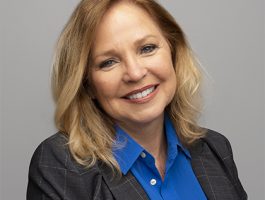
Fire Carriers
No matter what trials the Church has faced in history, the fire of the Gospel has continued. Valerie Bell, Matt Markins, and Mike Handler declare that the Church is meant to carry the fire to the next generation.
Show Notes
About the Host
About the Guest
-
- Find resources from this podcast at https://shop.familylife.com/Products.aspx?categoryid=130.
- Download FamilyLife's new app! https://www.familylife.com/app/
- Check out all that's available on the FamilyLife Podcast Network. https://www.familylife.com/familylife-podcast-network/
-
Dave and Ann Wilson
Dave and Ann Wilson are hosts of FamilyLife Today®, FamilyLife’s nationally-syndicated radio program. Dave and Ann have been married for more than 38 years and have spent the last 33 teaching and mentoring couples and parents across the country. They have been featured speakers at FamilyLife’s Weekend to Remember® marriage getaway since 1993 and have also hosted their own marriage conferences across the country. Cofounders of Kensington Church—a national, multicampus church that hosts more than 14,000 visitors every weekend—the Wilsons are the creative force behind DVD teaching series Rock Your Marriage and The Survival Guide To Parenting, as well as authors of the recently released book Vertical Marriage (Zondervan, 2019). Dave is a graduate of the International School of Theology, where he received a Master of Divinity degree. A Ball State University Hall of Fame quarterback, Dave served the Detroit Lions as chaplain for 33 years. Ann attended the University of Kentucky. She has been active alongside Dave in ministry as a speaker, writer, small-group leader, and mentor to countless wives of professional athletes. The Wilsons live in the Detroit area. They have three grown sons, CJ, Austin, and Cody, three daughters-in-law, and a growing number of grandchildren.
-

Matt Markins
Matt Markins is President and Chief Strategy Officer of Awana, a global leader in child discipleship. He is also a public speaker and coauthor of three books, including RESILIENT: Child Discipleship and the Fearless Future of the Church. He and his wife, Katie, have volunteered in children’s ministry for more than 20 years, and they have two sons.
Mike Handler
Michael Handler is the Chief Communications Officer at Awana. He has 18 years of experience in business and ministry. Through engaging storytelling and collaboration, he helps leaders understand the culture and creatively solve problems. Michael and his wife, Erin, have four children. They love family dinners and cheering on the Cubs and Bears.
Valerie Bell
Valerie Bell is an award-winning author, global children’s activist, and sought-after speaker. In 2012 Valerie joined Awana®, bringing her leadership, calling, and passion to join the efforts of Awana in reaching children and youth all around the world. In her most recent book, Resilient: Child Discipleship and the Fearless Future of the Church Valerie challenges church and ministry leaders to disciple today’s children and youth as they will become the leaders of tomorrow’s churches, comm...more
No matter what trials the Church has faced in history, the fire of the Gospel has continued. Valerie Bell, Matt Markins, and Mike Handler declare that the Church is meant to carry the fire to the next generation.
Dave: Alright; as parents, we have one job.
Ann: —to lead our kids to Christ and disciple them.
Dave: Ding, ding, ding, ding, ding! Yes, I was sort of looking for that.
Even as a pastor—I think we get lost in this—when we peel it all back and say, “What are we really trying to do?” it’s the Great Commission. You go back to Matthew 28; Jesus said, “Go and make disciples,”—and we can lose that—we do services; we do ministries. It’s like, “Wait; at the end of the day, we are actually trying to raise up a man or woman, who is resilient follower of Jesus Christ.”
Ann: Welcome to FamilyLife Today, where we want to help you pursue the relationships that matter most. I’m Ann Wilson.
Dave: And I’m Dave Wilson, and you can find us at FamilyLifeToday.com or on our FamilyLife® app.
Ann: This is FamilyLife— Today.
Dave: —Today.
As parents, we have one job.
Ann: —to lead our kids to Christ and disciple them.
Dave: Yes; that’s the goal/that’s the target; that’s what we’re shooting for. How do we get there?
We have three people in the studio that wrote a book that basically tells us how to get there. It didn’t take one person; it took three to write this. All three of you work with Awana, this amazing ministry that’s been around for 70 years?
Matt: Seventy years.
Dave: Seventy years, and it’s really discipled/can I say millions?
Mike: Absolutely!
Ann: And you’ve written the book called Resilient: Child Discipleship and the Fearless Future of the Church. We’re excited to have you guys back with us today.
Valerie: We’re happy to be here; yes.
Dave: One of the questions we all have—you use the term in the book; I guess it’s another word for disciple—fire carriers. When I first heard that—again, I’ve never read it anywhere else—I see it here, and I’m like, “Oh, as a dad, as a mom, as a minister,—
Ann: I really like that term.
Dave: —“I want to raise fire-carriers.” First, define it; and then let’s talk about how we do that.
Valerie: Well, fire carriers comes from our Western culture, where, out on the prairies, the cowboys would have to make these fires. There was always one person that was designated to carry the fire to make sure that the fire didn’t go out so that they could be protected from wild animals, so that they could have warmth, and so that they could cook their food. This person had an honored position.
I thought about that—and I thought, you know, all through the church’s history, we have had fire carriers—we have had fire carriers, who from the beginning of the early church, carried the fire of the gospel, even during persecution. If you look all through history, no matter what terrible thing was happening, there was always this group who refused to let the fire go out. They carried the gospel passionately to the next generation, and they made sure that those who came behind them had the protection of the spiritual fire that they carried.
We asked ourselves: “Are we fire carriers? Are we carrying that fire to the next generations?” and “Will it give them protection, strength, and warmth, spiritually, when we’re gone?”
Dave: Yes, it’s interesting; at the beginning of the book—we haven’t even talked about this—I knew a little bit about this man, who stood at the flag—
Valerie: Yes.
Dave: —when you just talked about fire carriers—I thought, “This is pretty interesting.” He would be a high school kid; right? Tell that story; it’s pretty powerful to think of, as a parent listening to this, “This is what I’m hoping someday my son or daughter would be.”
Mike: Hayden was this young man who—like any high schooler, who is standing up for his faith—was thinking he was taking a courageous move and being public with his faith. He went to this event, called See You at the Pole, at his local high school, where students gather around their flag poles to pray. He was the only one there. Time went on; and nobody showed, and nobody showed, and nobody showed.
Hayden’s mom uploaded the picture, and it went viral throughout social media. Hayden became that symbol, if you will, of resilience, especially on a public high school campus. Hayden’s mom said this:
Hayden told me that, as he stood alone and prayed, the cry of his heart had been, “God, as people drive by, let them wonder/let their hearts be pricked.” Eventually, when he realized that no one else was coming, the cry of his heart changed. He asked that God would do something with his standing alone.
The little boy I had rocked asleep in blue airplane pajamas”—I’m sure he was thrilled that his mom put that out there—[Laughter]—“the toddler, who loved Elmo, and couldn’t go to sleep without holding his VeggieTales characters in his hand, had captured the attention of our community by standing alone/by doing everything we’d ever taught him—everything we’d ever hoped he would do—I was completely undone.
Dave: Hearing the perspective of the mom—that’s all of us, as parents—that’s who we’re trying to raise: a fire carrier/a resilient young man, who will become a man or a woman, who carries the gospel to the next generation.
The big question, again, is: “Help us understand: ‘How do we do that? What are some of the steps we can take?’” I’m sure listeners are like, “Okay, I’m with you; I’m all in.
Mike: “Got it”; yes.
Dave: “Give me some help to do it.”
Ann: Dave, I want to reassure parents, too, that this is the work of the Holy Spirit. Yes, we have our part/the church has a part; but I’m always reassured that the Holy Spirit’s walking alongside us and our kids.
When I was in high school—I never grew up in church—and at 16 years old, I surrendered my life to Jesus. It was the first time I had ever heard the gospel; and I was thinking, “How has no one told me this?! I now know how to get to heaven; I can have an impact.” It was the good news to me.
Everywhere I’m going—and, you guys, I was the most annoying person—I walked into my home at night and said, “We’re all going to hell unless we know Jesus!”
Mike: I love this.
Ann: I would go to school, and none of my friends were believers. I would take my big Bible, and I would read it in class and in study hall. I would push it every day over to my friend, like, “Read this! This is amazing! This is in the Bible!” I was so annoying. It came to the point, where she took my Bible—she looked at me right in the eyes—she took a big handful of pages, and ripped them out of my Bible.
Mike: Wow.
Ann: I think, years later—we were out of college; we were married—she came to my home when we were at home, just in town for a weekend, and she knocked on the door. I was so thrilled to see her, because I loved her; our paths kind of had split. She said, “Do you remember when I tore out all those pages of your Bible?” I laughed.
Dave: Sort of a memorable moment!
Ann: I said, “I do; I apologize. I was probably so annoying. I’m so sorry, but I was so excited about what Jesus was doing in my life.” She said, “Could you tell me all of that now?”
Valerie: Wow.
Ann: She gave her life to Christ right there.
Valerie: Wow!
Ann: I thought it was a failure; and yet again, God’s Spirit was moving and working.
Mike: Yes.
Dave: Here’s the thing—I mean, you think about what Ann experienced, and Hayden, and resilient fire carrier disciples—you have studied this; this is what you do—help young people become followers of Christ and resilient disciples—what have you learned? “How can we, as parents/how can the church accomplish our mission?”
Matt: From 2014 to 2019, we conducted, at least, four research projects and pulled together other organizations’ research; we studied the Gospels. We wanted to know: “How did Jesus make disciples?”
Valerie, as CEO, she gets hundreds, and even thousands of letters over the course of a long time period, and we combed through those types of real-life testimonies. All of our research came down to three factors—parents, local church leaders—these are the three factors that most shape a child’s long-term identity as a disciple; it’s: “Belong, believe, become.”
Mike, why don’t we define those?
Mike: Belong is—the short version of it—is highly relational. It’s creating an environment of relationship. The gospel doesn’t happen in isolation very often—we’re not made for that—we’re made for community.
Valerie: I think of that illustration with your girlfriend. You were already discipling through your relationship with her. There was that highly-relational thing that was going on between these two high school girls. You were laying down the tracks for discipleship, even back then.
Matt: That first “B” is Belonging: highly relational. The second “B” is Believe.
Mike: —which is deeply Scriptural ministry, rooted in the truth of God’s Word. You can’t come to know and abide with Jesus without getting to know Him through His Word. So the ability to, not just know a child or be known as a child, but to be known and walk through the Word of God that reveals to us Jesus. John writes, “I write to you these things that you would believe.” We know that the Bible is given to us, as God’s Word, that we would believe in Jesus as the Christ/as the King.
Ann: Let’s pause there for a minute. Talk about how you guys have done that. You’re parents—all of you are parents—how have you done that?
Matt: First of all, we’ve always explained to our kids, from as early as they were able to comprehend, we explained the gospel as a big-picture story: creation, fall, redemption, restoration. They’re hearing, outside of our home, that life happens by happenstance; and we came about by natural processes.
There’s a better story than that; it’s that there’s a Creator. We chose, in our own rebellion, to pull away from God and to put ourselves above Him. Jesus is our Redeemer, and He’s going to restore us over time. That’s a better story, so helping our kids see that. But then—engaging them in community reading of the Bible at church and at home, and helping them to read the Bible on their own—you’re trying to eventually get them to where it’s not just a checklist that: “I’m reading the Bible for knowledge”; it’s an intimate relationship with Jesus; because they see, like your friend, “He’s my Savior.”
Valerie: We said: “God is who He says He is in the Bible, not who you think He is or somebody else thinks He is,” and “He is for us; that is the message all the way through the Scriptures. God is for us: so He is personal; He is involved in your life; He is active in your life; and He wants to be a part of everything that you do.”
We emphasize, like you guys, the personal aspect of God as shown to us through Scripture.
Dave: It is interesting/I’m guessing you put these three B’s in order?
Matt: They are semi-sequential; but you know, the Holy Spirit can work in ways that— [Laughter]—however—
Dave: What I’m thinking, though—because we missed it in the ’90s, as I led a church—we put Believe first.
Valerie: Yes.
Dave: We were like, “Man, we want people coming to our church. Once they become believers, we can get them connected to ‘belong.’” We missed what God is like: “No, He created relational beings. Many people want to belong before they even consider.”
Mike: That’s exactly right.
Dave: So you’re saying that’s key to discipleship.
Mike: —100 percent.
Matt: Studying the life of Jesus/studying how Jesus made disciples is what helped us to put them in that order: “Look at the woman at the well,” “Look at how Jesus was walking along the road/how He engaged them.”
Ann: He was discipling before.
Matt: Yes, absolutely. That’s where some of the sequence does come out of play—because Jesus was hanging around people—and they were catching from Jesus some things before He even taught them to them.
Dave: Here’s why I brought it up. I’m also—again, I have my dad hat on in a FamilyLife Today program about marriage and family—I’m thinking: “Dad or mom, if you’re really trying to help your son or daughter become a disciple, don’t miss this! It isn’t: ‘Just get them to church,’ ‘Get them into Sunday school, and drive them home,’—
Mike: Yes.
Dave: —“especially as they become teenagers.
“Is there a relationship? Are you spending time? Are you hanging with them? Are you just loving them and being their dad? Then the belief is going to come out of that relationship.”
Matt: That’s key; help them walk through life’s circumstances through the matrix of Scripture as well.
Dave: Yes.
Ann: Oh, so good.
Dave: We’re talking about the three critical factors in developing resilient disciples. We talked about Belong, and Belief; and the third one’s what?
Mike: Become, which is what traditionally have just—only that one have we qualified as discipleship—but we believe that Become is truly experiential ministry designed to move kids from a simulation to real-world application of their faith. That happens around dinner tables; that happens post-soccer games, where we lose; that happens everywhere that we’re with our kids. It’s not just segmented or sanctioned for one space or one place; it’s all of life.
Matt: That happens when your child says: “I’m feeling left out,” or “How do I navigate this situation?” We step right beside them through dialogue/through conversation. We help them to have eyes to see our faith story.
Valerie, talk about helping kids have—
Valerie: Well, I see it in that Hayden illustration. Here, you have someone who has become a disciple; they are willing to have primary allegiance and let the other groups in their life kind of take second-row seats. They are willing to be different; they are willing to be extraordinary in some ways; they are disciples. It’s not just the head knowledge or the church affiliation—there’s what I call ownership—suddenly there’s this ownership and, “I am following the Christ way; I’m following the Jesus pathway.”
Matt: As loving, caring adults—as parents—we can tell our faith stories to our kids in a way that helps them to see: “This is real, and my parents are helping me see that God is active in my life.” That’s Becoming.
We haven’t even told you the best news yet!
Dave: What’s that?
Matt: The best news is, not just these three components; it’s all three factors combined together. “What’s happening there?”—that’s shaping their identity as a resilient disciple.
Valerie: I’d like to say something else, too: “Even though we are talking about child discipleship, we’re really not talking about child discipleship. [Laughter] We’re talking about lifelong discipleship. So how do we create an environment for our children that they will want to be disciples throughout their lifetime?”
Ann: Yes; yes.
Valerie: That’s really what we’re talking about.
Dave: Let me ask you this, as we sort of wrap up a long discussion: “How has this worked in your own home? As you think about your kids—maybe think highs, lows/learning: “What we did right,” “What we did wrong,”—
Ann: “Does it work?”
Dave: —have you seen God work in your children?
Matt: This is real; this is real. In our organization—the churches that we serve and work with—people are stepping forward and saying, “This resonates with me, because this is what I actually see happening. This is what’s fruitful.”
I think of my own children. They came to me, because they felt like they could; because we had relationship. We talk about that—we listen; we go back to the Scripture: “What does God’s Word say?”—we commission them back out to do what?—to go back and get that life’s experience. We see these patterns happen in our lives; we see them in the way Jesus built disciples; and we see it in our own families.
Mike: Yes; and I think it’s also, in our house, I think about how I’m Dad taxi in the morning—I take kids to school—and I love it; because even during those small moments, we’re able to process some pretty big things. There’s a prayer we pray every day. A portion of that prayer that I pray with my kids, as we go to school, is simply, “Allow us to be kind to others, even when they’re not kind to us.”
Now, that’s not all of life, per se; this is one example/one little snapshot. But even in those simple words, I want my kids to understand that the gospel doesn’t just happen when it’s convenient, or when things are easy, or when life is light. It happens during heaviness; it happens during difficult times.
Also, hopefully, in dialogue and discussion and relationship with my kids, we’re able to process together: “Look, life isn’t always going to be neat, and orderly, and tidy. You will get treated unfairly, unkindly; and we’re still”—in the words of Christ—“supposed to love our enemies”; right? Again, that’s a small little snapshot in our own home about how this type of thing applies itself to our everyday life; I mean, a simple prayer on the way to school every day.
Dave: Valerie, you’re a grandmother, like we are grandparents.
Valerie: Yes.
Dave: What would you say to the parent—I’m guessing there are a lot of them listening, that are going—“My son or daughter walked away; they’re still a prodigal. How do I process that? What do I think, as a parent, in that home?”
Valerie: I believe that God writes the last chapter, and God puts the period on the story. It is never over ‘til God does that.
I have a girlfriend, whose husband died when she had teenagers, and had to raise four teenagers by herself. You can imagine what they put her through! One of her boys got involved in drugs; he had a child out of wedlock; he spent some time in prison. This was an upstanding Christian home—that this was happening to her—but he did come back to Christ. I thought it was so interesting—his summary of that time in his life—he said, “I was doing all the things the other guys were doing but not enjoying it.” There was the Holy Spirit in his life.
I do believe that God hears our prayers—keep building that bridge—don’t ever break the bridge off. Make it easy for them to come back. Keep sending the birthday cards, even if they come back to you. Send the Christmas gifts. Keep inviting, even if they say, “No.” Just wear them down with love.
I’ve also seen that God brings other people into this scenario. I’ve seen these scenarios, many times, where a parent can’t get through anymore; but God brings other people. I want you to hear my heart: “I understand how very painful that is, and I feel that. We all feel that for you. Don’t give up hope, though; because there is a God who loves your child more than you do.”
Ann: I think, for parents, that feel like, “Oh, I’m too late. I have teenagers, and they’re not listening to me,” it’s never too late, even for you to sit down and to say, “Tell me your thoughts. I want to know who you are,” and to speak life into them. That loving—“I see that you’re a leader,” “I see that strong passion that you have,”—our kids will always be drawn to our words of life.
Dave: Never give up your hope and dream of a resilient disciple of your children.
Ann: Yes.
Dave: It’s still God’s hope. Get on your knees—we do it every day—surrender yourself and surrender them again/surrender your kids back to Him—say, “They’re Yours. They’re not mine; they’re Yours.” We could do everything right/it doesn’t work; we could do everything wrong: “God, we surrender this vision to You.”
Ann: Valerie, will you close us with praying for the parents/the listeners?
Valerie: Absolutely. Yes, let’s pray.
Father, we don’t know the names of the people who are listening, but You do. There is a reason that they were listening. We ask You to bless their lives. We ask You to show Your presence to them, that You would come alongside them as they diligently work towards being Christian families and Christian parents.
We pray that You’ll give them a dream that they won’t be afraid to dream for their children, that will include the future, where their children are resilient disciples/resilient leaders, who will infuse the church of 2050 with leadership, and vision, and love.
Father, we pray this blessing over each of them, and may it be accomplished in Your power and in Your name. Amen.
Ann: Amen. Thanks for being with us, you guys.
Mike: Thanks for having us!
Matt: Thank you.
Bob: As Valerie Bell was praying, I was praying as well—praying for my kids, for my grandchildren, praying for the future of the church in America and around the world in the next 30 years—that ought to be on the heart of every person listening. We ought to be, not only wanting God to be at work in the lives of our children and our families in the years to come, but wanting God’s kingdom to advance through our kids and our grandkids in the years to come.
That’s what’s at the heart of the book that Valerie Bell, Matt Markins, and Mike Handler have written, a book called Resilient. It’s a book we’re making available this week to FamilyLife Today listeners. You can go online at FamilyLifeToday.com to request your copy, or you can call 1-800-FL-TODAY. Again, the website is FamilyLifeToday.com; the title of the book is Resilient: Child Discipleship and the Fearless Future of the Church. You can also request your copy by calling 1-800-358-6329; that’s 1-800-“F” as in family, “L” as in life, and then the word, “TODAY.”
Now, I know for a lot of you, this is kind of a season of shifting gears: as we end the summer, as the fall is beginning, back to school time happening. Here at FamilyLife, we’re shifting gears as well. David Robbins, who’s the president of FamilyLife, is here with us. David, we have a lot of exciting plans ahead for the fall of 2021.
David: That’s right, Bob. Yes, September really does begin a full-throttle mode for us, which is really exciting to be able to say in the context of this past year of a pandemic. We’re planning many things for this fall. One is that our Weekend to Remember®getaways—we will have all 30 of them—we’ve gone from a pandemic year, where we had 7 events, at about 30 percent capacity. We are so encouraged and grateful that we get to move into this fall and have a full slate of Weekend to Remember getaways.
That’s why we need your help. That’s just one of our initiatives of being able to come into this fall, and really go full-steam ahead in taking the gospel and the biblical principles of marriages and family to as many people as possible; and we need your help to be able to do it.
Bob: Here’s how you can help us this week and next week. We’ve set a goal; we’re praying that God would raise up two families in every city where FamilyLife Today is heard, who would step forward and become new monthly Legacy Partners/supporters of this ministry on a monthly basis. You’re actually making FamilyLife Today possible, not just for you, but for people in your community/in your city.
We’d like to say, “Thank you,” if you can join us as a Legacy Partner, by sending you a copy of Dave and Ann Wilson’s new book, No Perfect Parents, along with an all-access pass to more than a dozen messages from Dave and Ann—some have been featured on FamilyLife Today; some have not been heard yet—you’ll have access to those messages. And we’ll send you a certificate so that either you and your spouse, or someone you know, who you’d like to give a gift to, you can attend a Weekend to Remember marriage getaway this fall. We have about 30 getaways happening. We’ll send the certificate, and you can use it for yourself or pass it on to somebody else.
All of this is our way of saying, “Thank you for being a part of the team that makes FamilyLife Today possible in your community.” You do that by becoming a monthly Legacy Partner. Information is available online at FamilyLifeToday.com; or call us and say, “I want to join the team. I want to help make FamilyLife Today happen in our community.” The number to call is 1-800-FL-TODAY, and we look forward to hearing from you.
Now, tomorrow, we’re going to talk about how we do family discipleship in our home: “How do we help train our kids to be the kind of future leaders of the church that we’ve been talking about this week?” Kennon Vaughan, who’s a pastor, is going to join us to talk about what he’s doing in his home. I hope you can tune in for that.
On behalf of our hosts, Dave and Ann Wilson, I’m Bob Lepine. We will see you back tomorrow for another edition of FamilyLife Today.
FamilyLife Today is a production of FamilyLife; a Cru® Ministry.
Helping you pursue the relationships that matter most.
We are so happy to provide these transcripts to you. However, there is a cost to produce them for our website. If you’ve benefited from the broadcast transcripts, would you consider donating today to help defray the costs?
Copyright © 2021 FamilyLife. All rights reserved.
1




